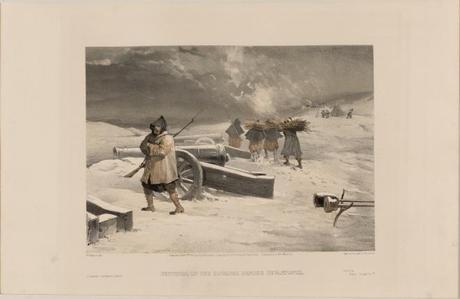
At the height of the Siege of Sevastopol (1854-55), during the Crimean War, the Russians had to sink their entire fleet to prevent it from falling into the hands of the enemy and at the same time to block the entrance of the Western ships into the inlet. When the enemy troops entered Sevastopol, they were faced with the ruins of a formerly glorious city. It’s a bit stereotypical, or maybe just a vain dream, for me to compare the British stronghold at Camp Nou with this historical event, unless, as history does with bookcases creaking under bombardments, it’s about to happen again. This is what happens when one inserts pleasure and repression into sports analysis, and the match invites you to look beyond itself into later horror: you smuggle Ferenczi and Freud on a boat to New York, and you get to Nazism in a postscript about what happened to players after the plot ends; or, you sink Messi deeper and deeper into midfield, and your performance waves between sardonic commentary on the ‘false-nine’ and a bit of acquiescent realism. Or else (various grounds for division are available here), you settle on the Oedipal conflict between figurative father and son, and then the psychoanalytic movement around Guardiola’s retirement becomes so ferociously dazzling and intricate that one only hopes it’s intended.
Be as it may with the historical panorama of the siege, Branislav Ivanovic, José Bosingwa, and John Terry are very persuasive: that is, they play out their symbolic roles with precision and discipline and only a touch too much earnestness. (Ashley Cole has been so good and composed here, the ultimate center-back, that he gets the pharaoh’s privilege to erase the names of his predecessors.) But are they supposed to be for Chelsea what they finally seem: priggish rather than conflicted in Ivanovic’s case, unbearably avuncular in Bosingwa’s, irremediably angry in Terry’s? Should the team support its captain, as Di Matteo does? Should it cater to his masochism? Should it abandon his respectable life, if he loves them? Chelsea’s answers, depending on the moment at which we catch them, are yes, yes, no, or three nos. But surely the defensive storyline can’t tell us anything about this. The sending off is very early on in the plot, and the match begins to get a little lost around here, which doesn’t seem like much of a departure from Terry’s ordinary self—unless we think the difference between the quiet autocrat and the violent one is the difference that counts. ♦

